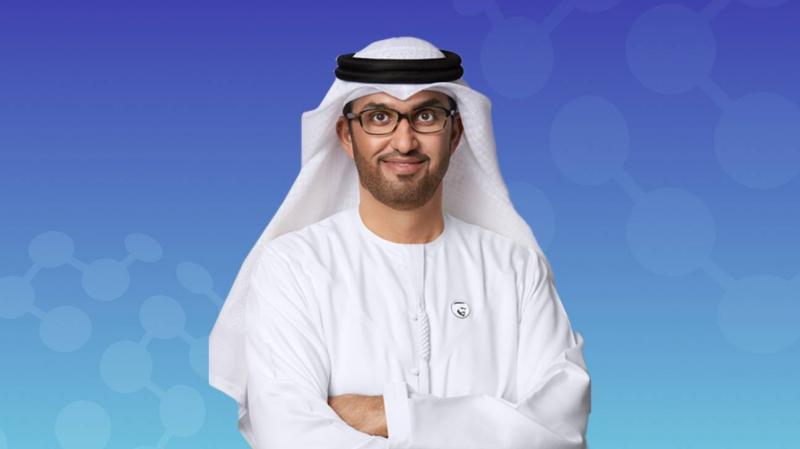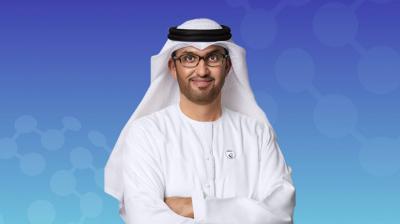The President of the COP28 Conference, Sultan Ahmed Al Jaber, Minister of Industry and Advanced Technology, affirmed that, thanks to visionary leadership, the United Arab Emirates plays a pioneering role in providing support to the countries and communities most in need, ensuring sustainable economic and social development fairly for all, according to the Emirates News Agency "WAM."
During his speech at the first meeting of the Board of Directors of the "Global Climate Fund and its Impacts," which was agreed upon for activation and funding on the first day of the COP28 Conference hosted by the UAE in Dubai last year, he noted that the issue of loss and damage has been on the agenda of the COP since 1991 and was activated when the UAE hosted COP28 in 2023. He emphasized that the last three decades have witnessed increasing impacts of climate change and obvious dangers threatening lives and livelihoods everywhere.
He called on all parties to build on the progress made through the historic "UAE Agreement" and the outcomes of COP28, to finalize the operational procedures needed by the time of COP29 in Baku, and to start directing funding from the fund to those in need to achieve long-term positive and sustainable economic and social development.
He explained that the agreement to activate the fund and its funding arrangements represented a significant and fundamental advancement in global climate action, following a decision of such importance on the first day of the conference hosted by the UAE. He highlighted that international commitments have been made to provide $792 million for the fund and its arrangements, including $662 million for funding, of which the UAE contributed $100 million. He indicated that this strong start is not enough, and that the world needs to take further action in this area.
Dr. Sultan Ahmed Al Jaber urged all parties to provide "concrete commitments" to enable the global fund to achieve the desired positive impact and deliver effective and tangible results. He noted that the fund would assist individuals in affected communities to recover from the impacts of climate change and rebuild their communities to enhance their resilience and improve their lives and livelihoods in the long run.
For his part, Dr. Abdullah Balala, Assistant Minister of Foreign Affairs for Energy and Sustainability and a member of the fund's board, stated during his speech at the preliminary events of the meeting that the parties contributed to writing history on the first day of COP28 by agreeing to activate the global climate fund and its funding arrangements after 30 years of waiting, reflecting the world's unity to support developing countries most affected by climate change impacts. He affirmed that the board plays an important role in implementing this commitment ambitiously.
The board members represent a diverse group of developed countries, countries from the Asia-Pacific region, Africa, Latin America and the Caribbean, small island developing states, and least developed countries.
It is noteworthy that the decision to activate the fund reached last year came after a series of meetings of the transitional committee responsible for the fund in the lead-up to COP28, including the fifth meeting hosted in Abu Dhabi about three weeks before the conference to rally consensus around this important issue after previous meetings experienced stagnation in discussions.
Progress on the issue of "addressing loss and damage" remains an urgent necessity for climate action even if the world succeeds in achieving emissions reduction goals, due to the current level of global warming continuing to afflict communities threatened by severe climate change impacts such as storms, floods, decreased agricultural productivity, and rising sea levels.




